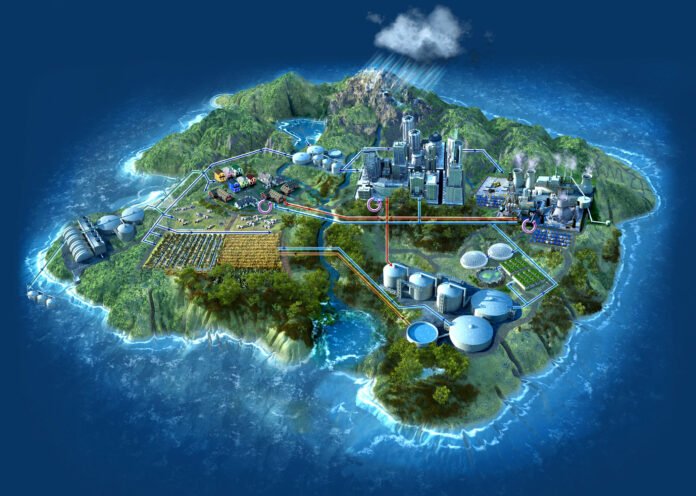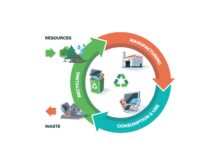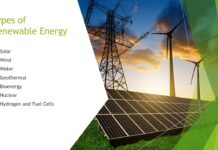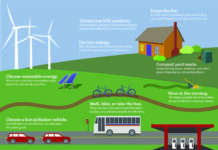The availability of clean water is vital for human health, economic growth, and environmental sustainability. Unfortunately, as the world’s population continues to increase, access to clean water is becoming more challenging, exacerbated by climate change and pollution. To make matters worse, the United Nations predicts that by 2025, half of the global population will be living in water-stressed areas. In this article, we will explore the future of clean water and investigate the innovative technologies emerging to tackle this critical issue.
Revolutionizing Water Treatment Innovations
Water treatment is the process of eliminating contaminants from water to make it safe for human consumption. Numerous innovations in water treatment are helping to enhance the quality of drinking water. Here are some of the latest water treatment technologies:
-
Membrane Filtration
Membrane filtration is a sophisticated process that employs semi-permeable membranes to eliminate contaminants from water. The membranes act as barriers, permitting water to pass through while obstructing pollutants. This technology can effectively remove bacteria, viruses, and other harmful pollutants from water.
-
Ultraviolet (UV) Disinfection
UV disinfection is a cutting-edge process that employs ultraviolet light to eradicate bacteria and viruses from water. This technology is particularly effective at eliminating microorganisms that are resistant to other water treatment methods.
-
Reverse Osmosis
Reverse osmosis is an advanced process that utilizes pressure to force water through a semi-permeable membrane, eliminating impurities and contaminants from the water. This technology can effectively remove dissolved solids, such as salt, from water.
-
Nanotechnology
Nanotechnology involves the use of tiny particles to remove pollutants from water. This technology can be employed to remove heavy metals, bacteria, and viruses from water, thereby improving water quality.
-
Biological Treatment
Biological treatment is an innovative process that employs bacteria and other microorganisms to eliminate pollutants from water. This technology is particularly effective at removing organic matter, including bacteria and viruses.
Transforming Water Conservation Innovations
Water conservation is the practice of using water more efficiently to reduce waste and ensure that water resources are sustainable. Innovative water conservation technologies are emerging to reduce water usage. Here are some of the latest water conservation technologies:
-
Smart Irrigation Systems
Smart irrigation systems utilize sensors and data analytics to determine when plants require water and how much water they need. This technology enables more efficient use of water in landscaping and agriculture.
-
Greywater Systems
Greywater systems recycle water from sinks, showers, and washing machines for use in landscaping and toilet flushing. This technology can reduce water usage by up to 50%, thereby conserving water resources.
-
Low-flow Fixtures
Low-flow fixtures, such as showerheads and faucets, use less water than traditional fixtures, resulting in significant water savings in homes and businesses.
-
Water Recycling
Water recycling involves treating wastewater and using it for non-potable purposes, such as irrigation and toilet flushing. This technology can reduce water usage and conserve water resources.
-
Leak Detection
Leak detection systems can detect leaks in plumbing systems and alert homeowners and businesses to the problem. This technology can reduce water waste and prevent damage from water leaks.
The Future of Clean Water
The future of clean water depends on a combination of water treatment and conservation innovations. Several trends are shaping the future of clean water. Here are some of the latest trends:
-
Decentralization
Decentralization involves moving away from large, centralized water treatment facilities and towards smaller, decentralized treatment systems. This approach can increase the efficiency and effectiveness of water treatment while reducing the risk of contamination.
-
Advanced Analytics
Advanced analytics, such as machine learning and artificial intelligence, can be used to optimize water treatment and conservation systems. These analytics can predict water usage patterns and identify opportunities for water savings.
-
Desalination
Desalination is an increasingly critical technology in areas where freshwater resources are limited. This process involves removing salt and other minerals from seawater or brackish water to make it safe for human consumption.
-
Green Infrastructure
Green infrastructure involves using natural systems, such as wetlands and rain gardens, to manage stormwater runoff and improve water quality. This approach can also conserve water resources by promoting the use of native plants and reducing irrigation needs.
-
Collaborative Governance
Collaborative governance involves bringing together stakeholders, such as governments, businesses, and community groups, to develop solutions to water management issues. This approach can ensure that water management policies are effective, equitable, and sustainable.
Conclusion
Clean water is crucial for human health, economic growth, and environmental sustainability. The future of clean water depends on the development and implementation of innovative water treatment and conservation technologies. Water treatment innovations, such as membrane filtration and nanotechnology, can improve the quality of drinking water. Water conservation innovations, such as smart irrigation systems and greywater systems, can reduce water usage. Trends such as decentralization, advanced analytics, desalination, green infrastructure, and collaborative governance are shaping the future of clean water. By investing in water treatment and conservation technologies, we can ensure that future generations have access to clean and sustainable water resources.
Google News | Telegram















